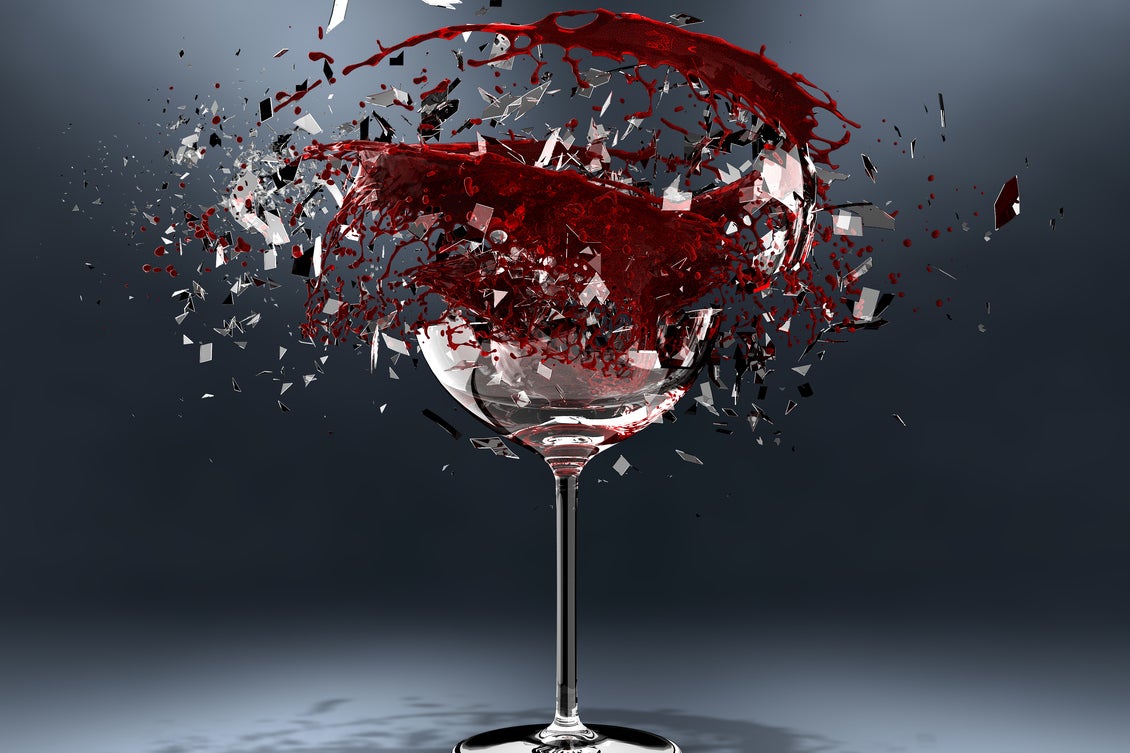Will wine recommendation apps spell the end for sommeliers, critics and experts?
Tens of millions of people are signed up to TripAdvisor-style wine apps, so who cares what sommeliers have to say?

Your support helps us to tell the story
From reproductive rights to climate change to Big Tech, The Independent is on the ground when the story is developing. Whether it's investigating the financials of Elon Musk's pro-Trump PAC or producing our latest documentary, 'The A Word', which shines a light on the American women fighting for reproductive rights, we know how important it is to parse out the facts from the messaging.
At such a critical moment in US history, we need reporters on the ground. Your donation allows us to keep sending journalists to speak to both sides of the story.
The Independent is trusted by Americans across the entire political spectrum. And unlike many other quality news outlets, we choose not to lock Americans out of our reporting and analysis with paywalls. We believe quality journalism should be available to everyone, paid for by those who can afford it.
Your support makes all the difference.Wine has long been one of the ultimate markers of class and taste. It separates those who poke their finger at the second-cheapest bottle on the wine menu to avoid pronouncing “sauvignon blanc” incorrectly, and then say “oh, that’s lovely!” when asked to test the wine rather than simply confirming it isn’t corked, from those who confidently match wines with their meals and actually know what tannins are without Googling the word. Rising above them all are the deific sommeliers, with super-senses able to identify wood and flowers with a quick sniff.
Now, Vivino, and similar apps such as Plonk, have democratised wine and have experts nervously eyeing their CVs for other options. (How much does Oddbins pay per shift these days, anyway?)
Similarly to TripAdvisor, the 21 million users of Vivino rate and comment on wines available on restaurant menus, with their verdicts collated to form the overall grade out of five stars. It also tracks and organises a person’s favourite wines. The wine scanner feature enables users to check the price of a wine, and compare ratings and prices. Plonk, meanwhile, encourages users to share their snaps with their favourite bottle, and helps to match the drink with food.
As a result, wine is demystified and restaurants held more accountable for overcharging customers. If a sommelier thinks a wine is cheap plonk, but 3,000 others disagree then what is their opinion worth? If we've learned anything from 2016, it's that experts are apparently passé.
So, should sommeliers be quaking in their antique leather armchairs?
Tom Harrow is the wine director at the Honest Grapes wine recommendation website. With 15 years experience in the business, and a wine vocabulary in-depth enough to make your palms sweaty, he is a veritable expert.
In 2009, Harrow and his colleagues launched the now-defunct Wine Chap app, seen as a game-changer at the time, where they would review top wines. It later folded due to the sheer amount of data and manpower required.
“There is a hunger for wine apps,” Harrow says “Vivino has empowered consumers and helped demystify wine, so yes, I think it’s been a positive thing and also shows the growing importance of peer-based review.
“These are no longer the days when the word of half a dozen wine critics are taken as gospel.”
He adds that such apps are positive in that they encourage people with a passing interest to understand the rubric so it can develop into a passion.
But, he isn’t afraid that he’ll soon be out of a job. “Let’s be honest, TripAdvisor has its merits but it also has ill-informed idiots making spectacularly pointless and unfair comments. The problem with the peer-to-peer review system is the majority of people don’t always have the expertise to evaluate a wine fairly. That is where a so-called wine expert can breathe easy: there is a place for more informed objective view."
Having studied wines for years, experts have trained their palates to pick up nuances and can use their extensive vocabularies to get to nitty-gritty of what separates a good and great wine. In turn, experts are better able to determine the quality of a wine, the history of the people who make it, the vintage, grape varieties and so on. “Knowledge gives you more than just what’s in the bottle. It gives context,” Harrow argues.
“I think apps are an interesting development and one having an impact but don’t think it’s revolutionary to extent people think it is.”
Chiming with Harrow, wine writer Radka Beach suggests that, if anything, “bad somelliers should certainly be nervous. But so far no app can compete with any passionate sommelier who knows his wine list well and can advise the customer the right wine for his budget.”
For now, sommeliers can make like a good merlot and breathe.
Join our commenting forum
Join thought-provoking conversations, follow other Independent readers and see their replies
Comments